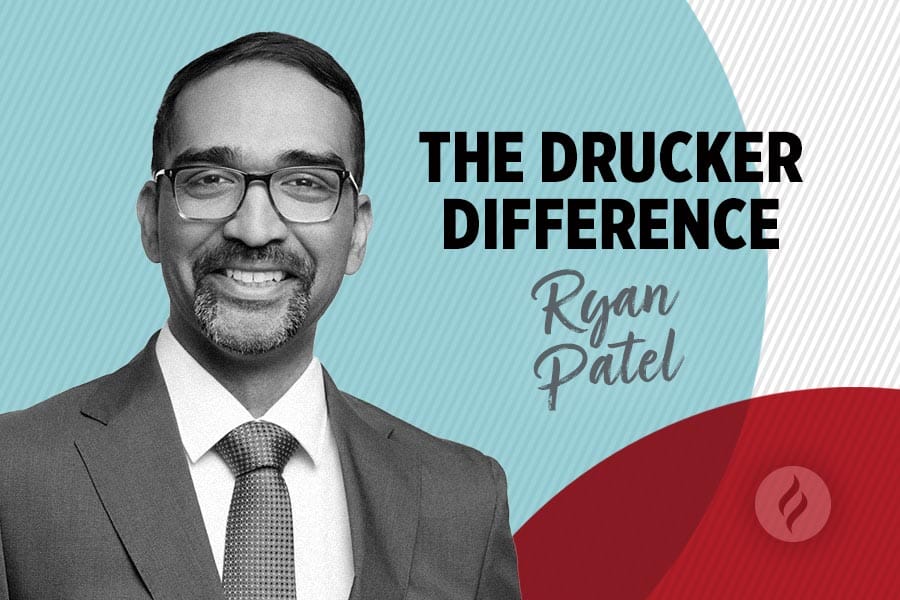The Drucker Difference: Taking Stock and Moving Forward

By Ryan Patel, Senior Fellow, Drucker School of Management
You’re among the tens of thousands in the knowledge economy who recently lost your job, there’s little comfort in feeling that you’re not alone. Being told you’re no longer wanted is devaluing—perhaps at an existential level—but I can assure you that you have far more value than you might think.
After grinding away for a company that didn’t love you back, you finally have the opportunity to take a deep breath. Think of it as a paid sabbatical. The key is how you use this time.
As Peter Drucker said, “Success in the knowledge economy comes to those who know themselves—their strengths, their values, and how they best perform.”
Self-awareness is Step One. If you don’t hold yourself accountable for your personal wellbeing, who will? Put down that bag of chips and energy drink and be purposeful about incorporating healthy practices into your daily routine. (Yes, I’ve been where you are now.) I love to shoot hoops alone on the basketball court and take early morning hikes, and I try to eat healthy more often than not. It makes a difference, increases your energy level, and makes life easier to manage.
Career-awareness is Step Two. Often, people don’t think about what they really want to do. They stay within their industry even if that industry beats them down. It pays, the rent, right? Realize that there are interconnected industries and opportunities that you’ve never considered. This is where you have power. Your knowledge is in demand.
Make a list—a serious, thought-out checklist—about what matters to you and how you convey it. If you’re wondering where to start, consider these points:
- Think about the values you want your next employer to embody. How are they trying to be more diverse and sustainable? What does a better tomorrow look like? If you want to show that you’re passionate about something, ask leaders and interviewers about an initiative they started and how their organization continues to pursue their stated values. Think of interviews as a two-way street: employers aren’t the only ones who need to do their due diligence.
- Be conscientious about who you want to work with. What is their mission? Does it align with your beliefs? You will find you’re much more energetic and focused—more successful and valuable—when you’re working for and with others who share your priorities.
- Rethink how you’re putting yourself forward. How are you communicating your value and telling your story? What have you accomplished and how did you do it? Your resume and cover letter should be a reflection of you, not a sales pitch for a job.
- Update your LinkedIn profile. This goes beyond attaching an end date to your recent job. Recruiters and employers increasingly consider a candidate’s social media presence. Use yours to share your value and your values.
- Create smarter networks. Reach out to people and peers outside your industry. Express how you can be valuable to them. Lead with your character. This is an opportunity to give, not take.
Every loss involves grief—but recognize when it’s time to start taking ownership. It just might be today.
Ryan Patel is a board member and senior fellow at Claremont Graduate University’s Drucker School of Management. He is widely regarded as a thought-leader in global business and an expert in growing and scaling companies.
More from The Drucker Difference: